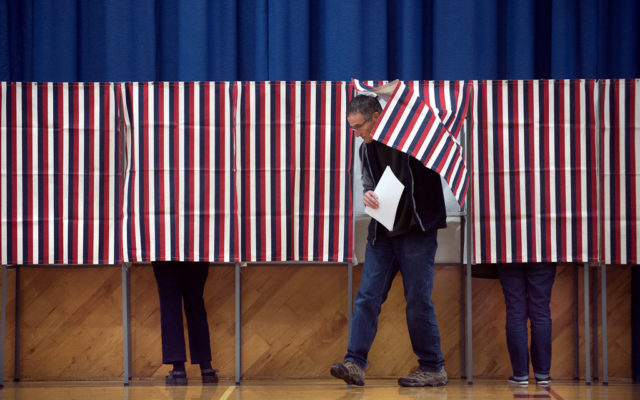
Maine plans to avoid long waits for election results in November, but uncertainty remains
November election results may be delayed for up to a day in parts of Maine, but not for the days or weeks that others are girding for as clerks boost capacity to handle record-shattering shares of absentee ballots and make contingency plans during the coronavirus pandemic.
The July primary was seen as a trial run for how the Nov. 3 election will unfold. Cities and towns tried out social distancing measures meant to keep a smaller group of in-person voters moving through polls. The high-stakes presidential election season could be more unpredictable.
Turnout could be historically high. Nearly as many Mainers requested absentee ballots as of earlier this week as they did in the 2012 election. Ranked-choice voting is likely to kick in for the nationally targeted U.S. Senate race and it could apply to the presidential election in Maine for the first time in U.S. history, while a lawsuit could lengthen the amount of time to submit ballots.
“It’s November 2020, so all bets are off,” Lewiston City Clerk Kathy Montejo said.
Across the country, delays could be long. Some are warning it could take weeks for results in some states to be finalized. That could drag out the election process as President Donald Trump continues to float unsubstantiated claims that mail-in voting could drive voter fraud. Delays in reporting could lead to early returns that look far different than ultimate results.
Most places in Maine expect results to take no longer than a day. Here, people typically learn outcomes on the night of the election after media outlets project them based on unofficial returns from local clerks. But races decided by ranked-choice voting must be confirmed by Secretary of State Matt Dunlap’s office in a process that typically takes about a week.
The state has adjusted rules to give cities and towns more time to process results and allow clerks to hire election workers from neighboring counties. An executive order from Gov. Janet Mills gave clerks an extra week to process absentee ballots. Early access to absentee voting may prevent an avalanche of ballots from arriving the day of or long lines at the polls.
During the July primary, absentee votes in Portland, Maine’s largest city, were not counted until the evening after Election Day. City Clerk Katherine Jones said that was because there were many ballot designs and only so many tabulators despite staffers working around the clock.
Jones does not think that will happen in November. The city has ordered 22 more counting machines including a high-speed tabulator that can process 7,000 ballots an hour, in a move that nearly doubles the number of machines.
Nearly 21 percent of Portland’s 61,000 registered voters have requested absentee ballots so far, according to state data. But the speed at which results are reported after 8 p.m. on Election Day depends on how many are turned in before the day itself, Jones said.
“I can’t stress enough how important it is that voters get those into us as soon as they can,” she said.
Bangor City Clerk Lisa Goodwin said the city is beefing up its number of election machines as well — going from 10 to possibly 26 — to avoid long lines it saw in July. Staff will work late into the night to finish results if needed, since city councilors and school board members are scheduled to be sworn in the following week.
“If we aren’t finished, that could cause chaos,” she said.
Municipalities are also having to balance how many poll workers they hire with Mills’ distancing requirements, which generally limit 50 people in indoor spaces. Tody Justice, Scarborough’s clerk, said the town will hire 40 workers to man check-in tables, machines and direct pedestrian traffic while spreading voting throughout the high school to accommodate more people.
There could be surprises. A lawsuit from advocates for seniors seeks to force Maine to accept ballots postmarked on Election Day to make voting easier during the pandemic. Similar lawsuits in Pennsylvania and Georgia have been successful. In Pennsylvania, ballots will be counted as long as clerks get them up until 5 p.m. on the Friday after Election Day.
Justice said she is not concerned about the number of absentee ballots the town will receive holding up results. She is worried about partisan poll-watchers contesting the process or changes in how late ballots are allowed to be turned in.
There is also a time limit to consider. Official election results must be certified by Dunlap 20 days after the election. Maine also needs time to go through the ranked-choice voting process, which could be complicated if results take longer to tabulate or a recount is requested.
“Our focus, as always, will be on making sure everything is accurate and according to law, whatever may come,” said Dunlap spokesperson Kristen Muszynski.